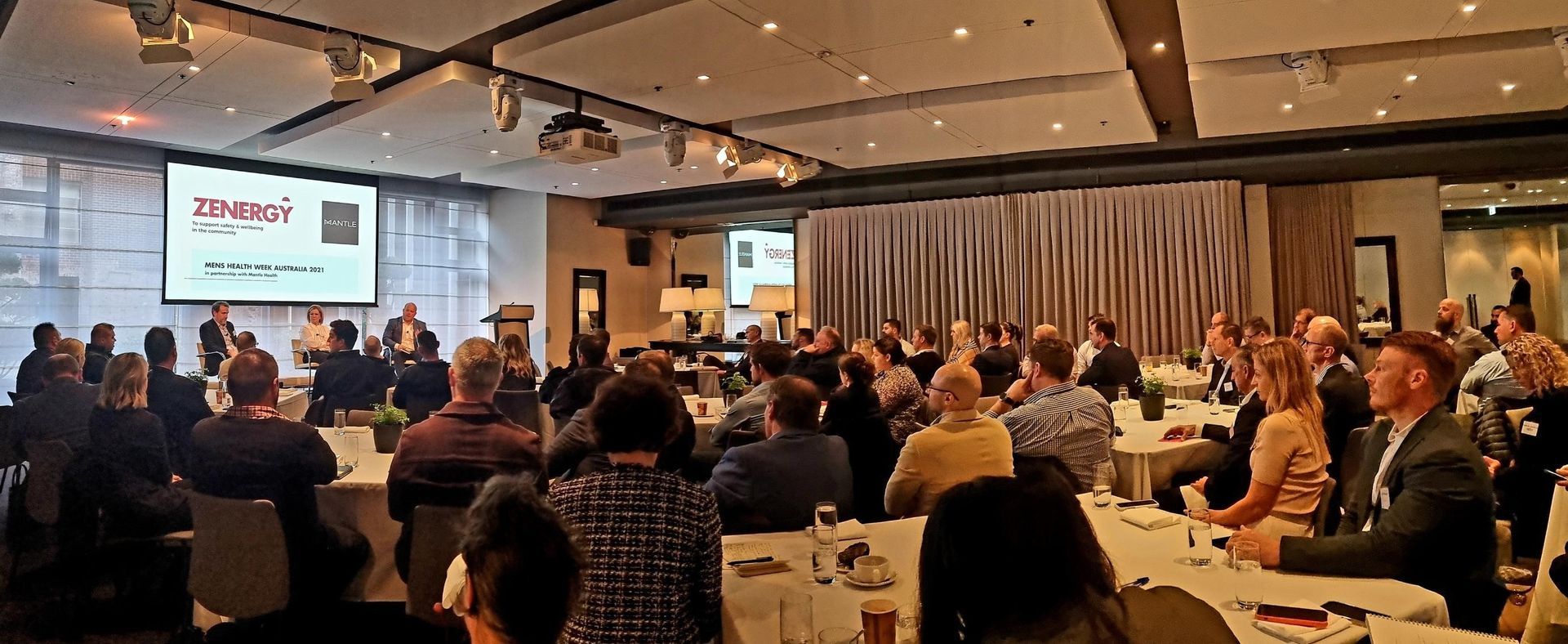By Dean Woods
•
26 Nov, 2018
Making business decisions without understanding how they affect the integrity of an organisation’s safety systems can cause major safety incidents, a safety commissioner has warned employers in a high-profile Q&A seminar. Australian Transport Safety Bureau Commissioner Carolyn Walsh, who is also deputy chair of the National Transport Commission, told delegates at the Zenergy Group CEO’s Forum in Sydney this week that incidents like the 2003 Waterfall train disaster in NSW result from a series of failures occurring simultaneously to magnify a simple error. The train driver suffered a heart attack and lost control of the train, which derailed at a curve in the tracks and killed seven people, including the driver. An inquiry found a number of converging factors caused the incident, including the deadman’s pedal failing to release and stop the train due to the driver’s weight. Walsh referred to the Swiss cheese accident causation model, where each cheese slice represents a safety system. “When that Swiss cheese aligns and you get a hole in each of those defence mechanisms, that’s when the bad things happen,” she said. “I think the challenge is, not for safety managers, but for boards and managers, to understand that when you make a business decision, and it might seem to have nothing to do with safety, you are probably either increasing one of those holes in the Swiss cheese unintentionally or you’re actively trying to reduce those holes. “I think where those random things happen is when management make these business decisions and they don’t understand the consequences of what it does to the integrity of the systems.” Walsh says company officers should view their safety duties in the same way as their fiduciary duties, and ensure they’re safety literate, able to read a safety report and know what questions to ask their workers. Fellow panel member and WHS law expert Bruce Hodgkinson SC of Denman Chambers agreed. He said the converging of circumstances can only be managed if those at the top levels of a company approach every decision across every aspect holistically. Hodgkinson, who has been involved in major work health and safety prosecutions, said that in making a business decision, board members and senior executives need to consider matters other than financial, reputational or media impacts. They need to ask: “How are we going to make it work, have we got the right training in place, have we got the right review in place, are the people doing the training the right way?” he said.
Categories
How can we help you?
Contact us for any help, more information or any business enquiries.
Contact Us
For more information on our services feel free to email us on -
info@zenergygroup.com.au or call 1300 333 400
Sydney
25 Brisbane Street
Surry Hills
Sydney NSW 2010
Melbourne
Level 23, Tower 5, Collins Square
727 Collins Street
Melbourne VIC 3008
Brisbane
Level 54, 111 Eagle Street
Brisbane QLD 4000
Perth
Level 25, 108 St Georges Terrace
Perth WA 6000
Recent News

22 Apr, 2024
The annual Zenergy Leaders Forum is one of the premier events on the senior health, safety & sustainability calendar in Australia. This is a non-ticketed invitation only event hosted by Zenergy. Attendee numbers at the Zenergy forum are 150 and will include executive, people and culture directors, CEO, COO and directors of health & safety and HSE personnel. The topic for this year is “Integrated Psychosocial Risk Management”. All of the event information is below and reach out to your account manager at Zenergy for further details.

22 Apr, 2024
This article has been reproduced with permission from OHS Alert, and the original version appears at www.ohsalert.com.au . A commission has cautioned that society's "significantly raised" bar for what constitutes consent for physical interactions is "even higher" in work-related environments, in upholding the summary dismissal of a worker for inappropriately touching a colleague. In Perth, Fair Work Commission Deputy President Melanie Binet said that regardless of the intention of the worker, who claimed he was simply moving his female colleague "out of the way", his conduct was a valid reason for dismissal. Workers should be "on notice" of the increased scrutiny of behaviours, given the extensive social discourse and media coverage on sexual harassment issues, she said. "This is particularly so in the mining industry in Western Australia where a parliamentary inquiry [see related article ] focused community attention on the odious frequency of sexual harassment and assault of women in the mining industry." The Deputy President added that recent amendments to the Commonwealth Fair Work Act 2009 that specifically identify sexual harassment as a valid reason for dismissal (see related article ) "reflect a societal recognition that sexual harassment has no place in the workplace in the same way as violence or theft don't". The worker was an Alcoa of Australia Ltd advanced mechanical tradesperson when he was sacked for inappropriately touching the colleague in an office at Alcoa's Pinjarra Alumina Refinery in September last year. The worker claimed he turned his back to the colleague to squeeze between her and a desk to go to speak to another person and his hands made contact with her lower torso. Afterwards, the colleague's partner entered the office and found her visibly distressed. He confronted the worker, accusing him of grabbing the colleague's buttocks and squeezing it. The issue was escalated, and the worker was summarily dismissed after an investigation concluded he sexually harassed the colleague by making "unwelcomed and socially inappropriate physical contact". Alcoa found the worker breached codes and policies that he had been trained on, which stated that harassment was not determined by the intent of the person who engaged in the conduct but by the impact on the recipient. The worker admitted touching the colleague but claimed this only occurred because the room was crowded. He said he did not intend to behave in a sexual manner and apologised to the colleague as soon as he found out she was upset. He claimed unfair dismissal and sought reinstatement in the FWC. Deputy President Binet found the worker's accounts of the incident were inconsistent, with the parts of the colleague's body that he touched changing in his various statements. She accepted the colleague's evidence that the worker groped her in an "intimate sexual location" and his conduct caused immediate and ongoing effects to her health and wellbeing. The worker could have waited until there was space for him to pass between the desks, requested the colleague to move from the gap or gently touched her arm to get her attention, the Deputy President said. "There was simply no justification for him to turn his back then have his hands at [the colleague's] buttocks level, touch her buttocks and consciously push her out of his way," she said. "I am not convinced that [his] conduct was intended to be entirely without a sexual nature," she concluded. She stressed that even if she was wrong on this point, this type of unwelcome touching could objectively be seen as being capable of making recipients feel offended, humiliated or intimidated. The Deputy President also slammed the worker's representatives for choosing "to follow a well-worn but discredited path of blaming the victim" by accusing the colleague of inviting the "accidental" contact by standing in the narrow walkway. "Women should be able to attend their workplaces without fear of being touched inappropriately," she said in dismissing the worker's case. "It is a sad inditement of the positive work that has been undertaken by employers, unions and regulatory bodies in the mining industry that young women like [the colleague] are still frightened to report incidents of harassment for fear of being ostracised."
© ZENERGY 2022 | Privacy Policy |



